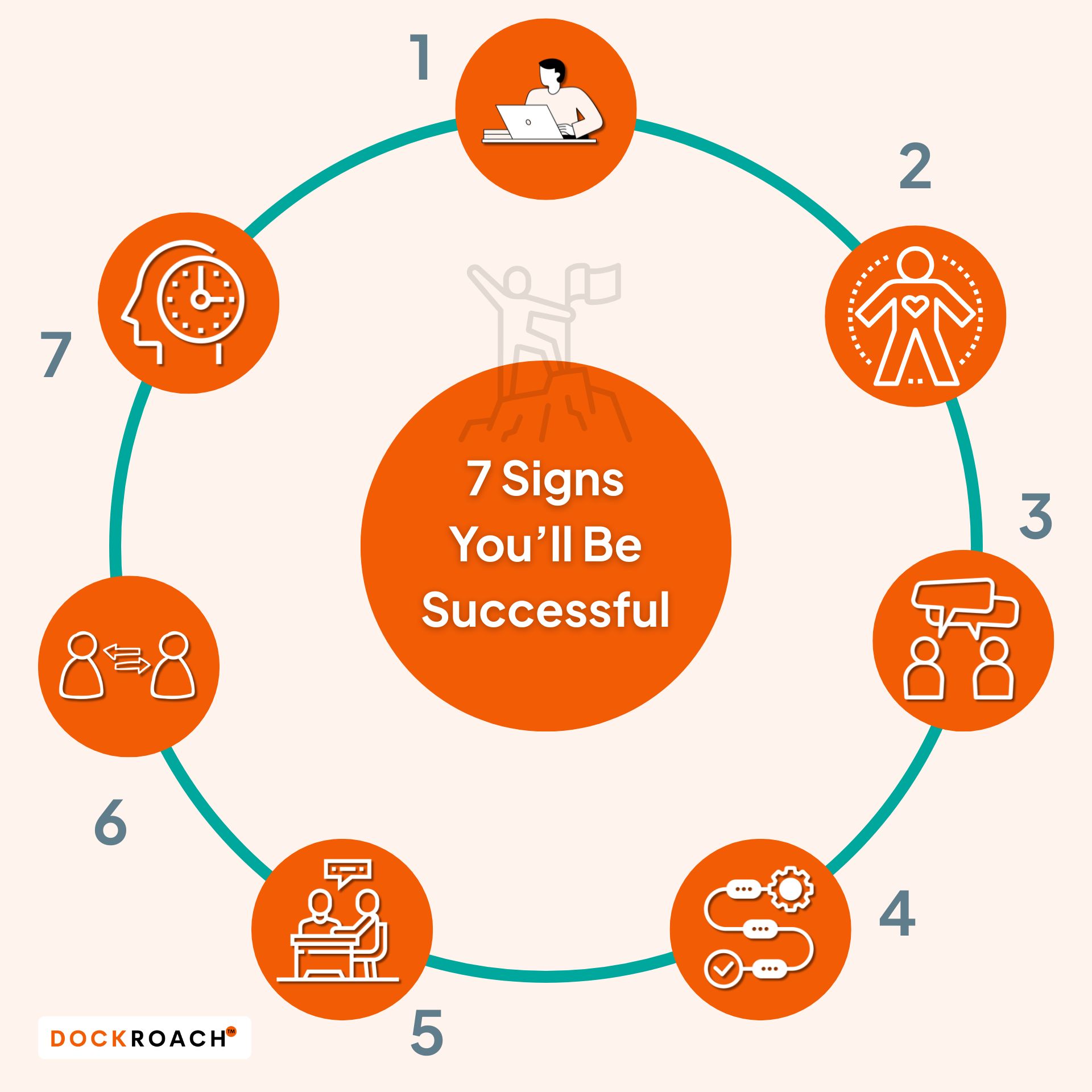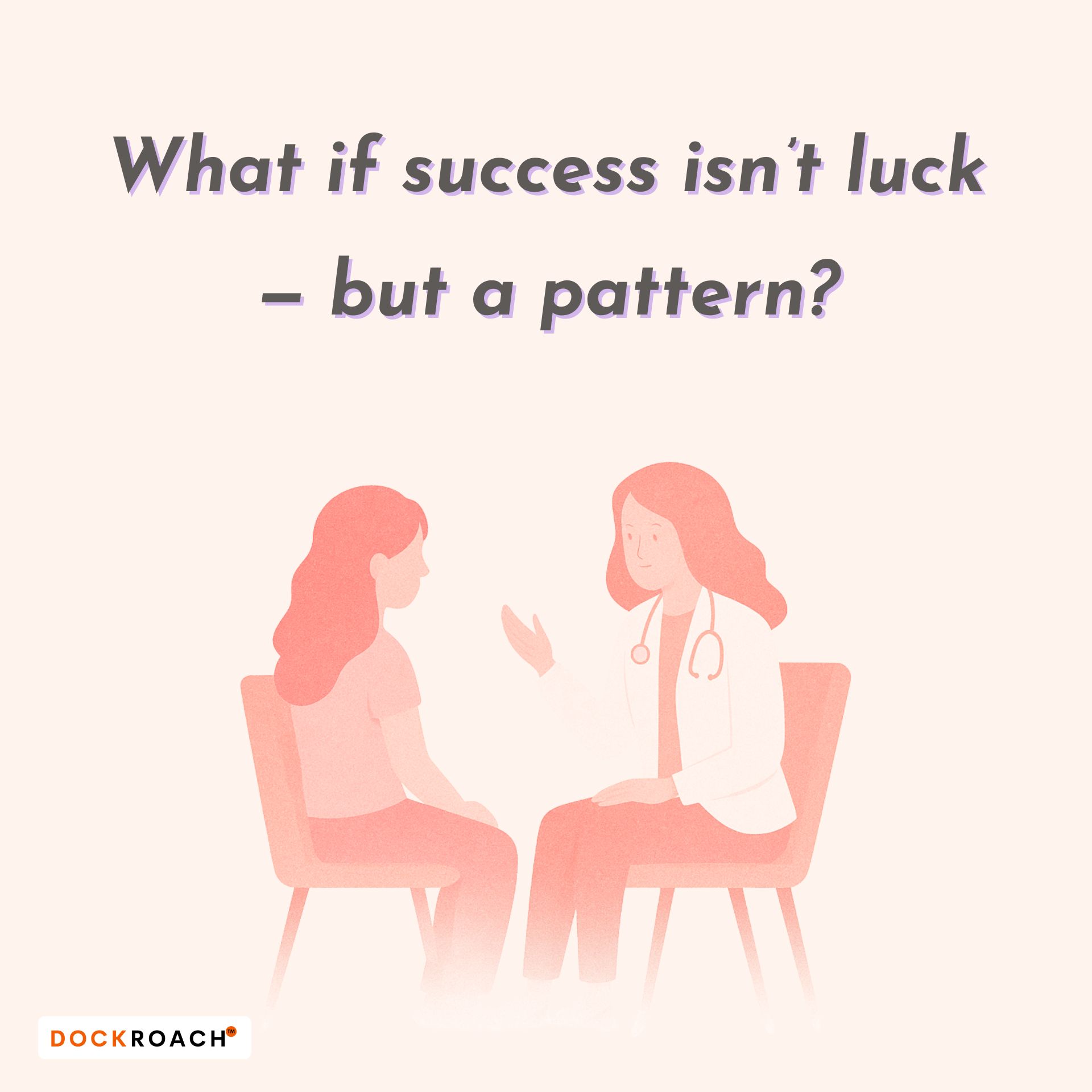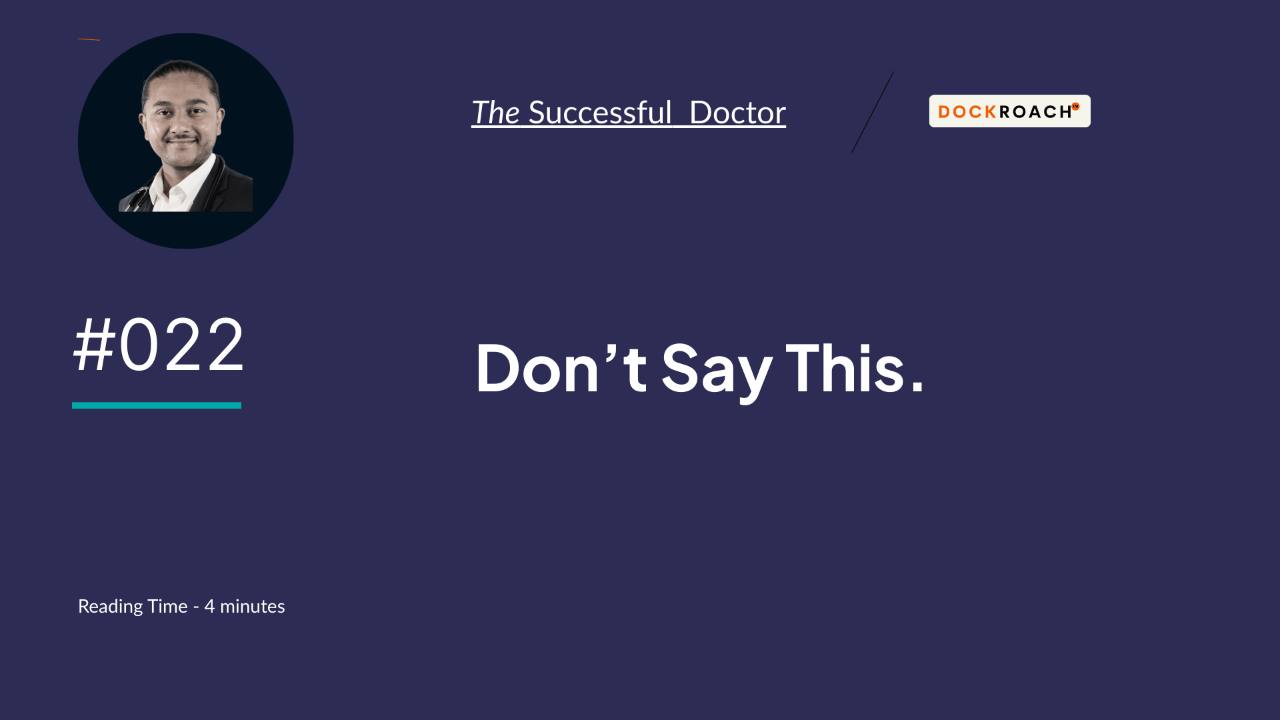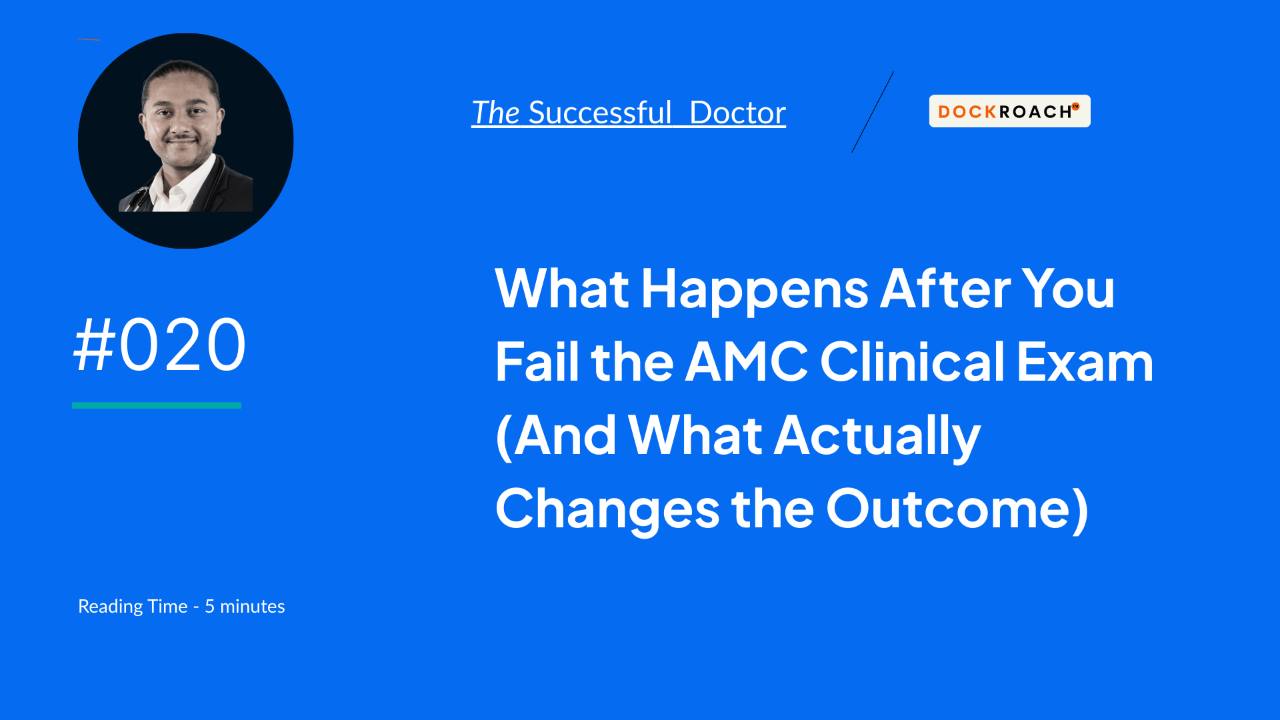7 Signs You’re Going To Be Successful in the AMC Clinical Examination
Read time: 4 minutes
Today, I’m going to walk you through seven signs that indicate you're on the right track to passing the AMC Clinical Exam.
These are traits I’ve seen time and again in successful candidates — and they’re patterns you can build too.
Most candidates don’t actually know if they’re preparing well. They’re working hard, but not always in the right direction. These seven signs will give you a reference point — if you see yourself in them, you’re closer than you think.
In 2024, 3 out of 4 IMGs failed their clinical exam.
Why Do People Fail the Clinical Exam?
They don’t fail because they lack clinical knowledge.
They fail because they don’t practice with intention.
They avoid role-playing.
They fear feedback.
They let anxiety take over.
Let’s change that for you.
Success in this exam is not random.
It’s structured, predictable and observable.
7 Signs You’re Going To Be Successful
-
You’ve organized your preparation materials into a structured case bank
-
You’ve developed emotional control and self-confidence
-
You role-play consistently, even when it’s uncomfortable
-
You use a simple, repeatable structure in every station
-
You’ve taught a non-doctor to help you role-play
-
You’re confident playing both doctor and patient roles
-
You’ve built a strong internal sense of time during stations

I’m going to briefly explain each of them. Let’s go.
1. You’ve organized your preparation materials into a structured case bank
Your notes aren’t scattered.
You’ve created a reliable workflow: cases grouped by topic, flagged by difficulty, and rotated weekly.
This shows you’ve taken ownership of your learning — not just memorizing, but mastering.
2. You’ve developed emotional control and self-confidence
You’ve accepted that anxiety is part of the process — and you’ve trained for it.
You take feedback without spiralling.
You stay calm under pressure.
That’s not luck. That’s preparation.
3. You role-play consistently, even when it’s uncomfortable
Reading theory doesn’t build exam skill.
You’ve made role-play a habit.
You’ve put in the reps to build fluency, not just familiarity.
And when others skip it? You still show up.
4. You use a simple, repeatable structure in every station
You don’t “wing it.”
You know how you start.
You know your transitions and signposts.
You know how you close.
Your reading time, introductions, history inquiry, explanation, and exit strategies follow a familiar rhythm — and that makes your delivery look effortless and professional.
5. You’ve taught a non-doctor to help you role-play
You don’t wait for perfect study partners.
You train the people you have.
Your spouse.
Your sibling.
Your friend.
They get good at playing the patient because you’ve made it a system.
And that system works.
6. You’re confident playing both doctor and patient roles
You’ve practiced both sides.
You understand what empathy feels like from the patient’s seat.
And you use that when you're the doctor. That’s how real connection is built.
7. You’ve built a strong internal sense of time during stations
You don’t just rely on timers — you’ve developed internal time awareness.
You know the power of the first 2 minutes and the last 2 minutes.
You know which stations need speed (full stations) and which need space (counseling).
That’s mastery
“Victorious warriors win first and then go to war, while defeated warriors go to war first and then seek to win.”
— Sun Tzu, The Art of War

If you see even four or five of these signs in yourself — you’re doing better than you think.
If you’re not there yet, don’t guess. Follow the roadmap inside here.
These aren’t talents. They’re trainable.
Keep building.
Keep showing up.
You’ve got this.
That’s all for now. See you next fortnight.






